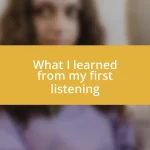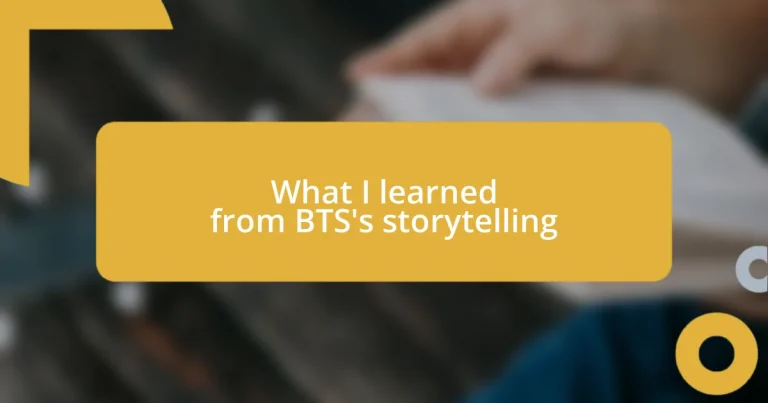Key takeaways:
- BTS employs vivid metaphors and personal storytelling to create emotional connections, allowing listeners to relate deeply to their music.
- Their narratives explore complex themes such as self-discovery, mental health, and connection, fostering a sense of community among fans.
- Authenticity and emotional resonance in personal storytelling can strengthen connections, making narratives more impactful and relatable.
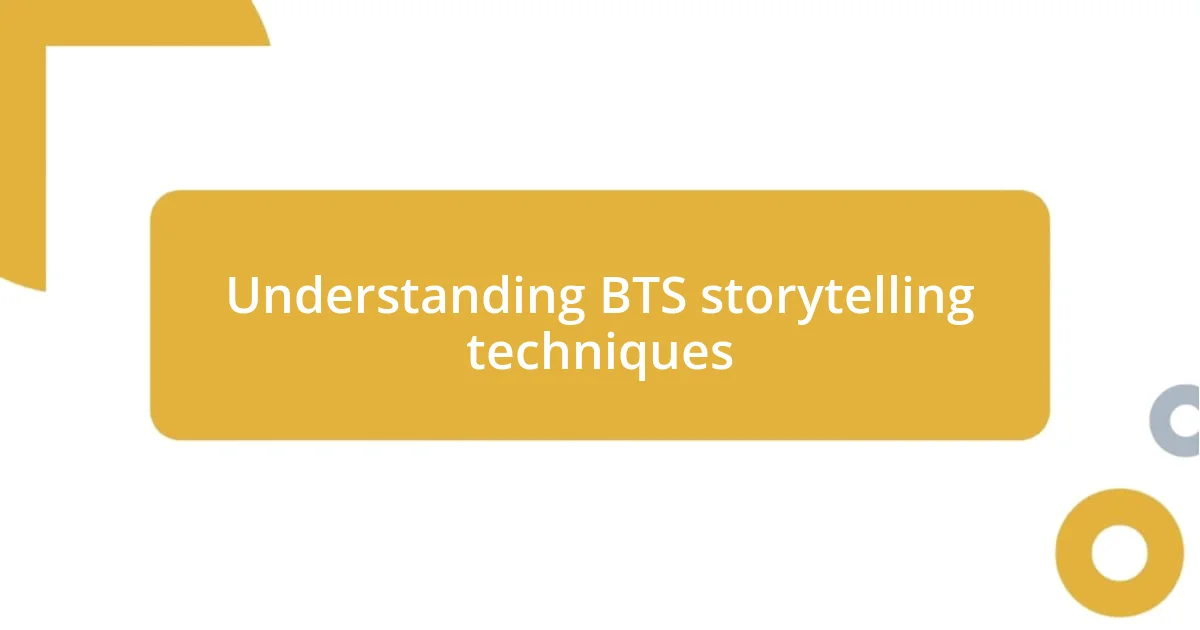
Understanding BTS storytelling techniques
BTS masterfully weaves personal narratives with universal themes of love, loss, and self-acceptance, creating a tapestry that resonates with many. When I first listened to “Spring Day,” I was struck by how their storytelling evoked feelings of longing and nostalgia. It made me ponder—how can a song capture such deep emotions so beautifully?
One technique that stands out is their use of metaphors and imagery, which allows fans to visualize their stories vividly. In “Fake Love,” I found myself grappling with the metaphor of a façade, reflecting on my own experiences of pretending to be someone I’m not. Isn’t it interesting how such a relatable theme transcends language and culture, connecting us all?
Another aspect is their ability to incorporate personal letters and messages to their fans into their storytelling. For instance, in several behind-the-scenes videos, they openly share their struggles and triumphs, reminding us that vulnerability is not a weakness but a source of strength. This kind of authenticity invites us to reflect on our own journeys—how does sharing our stories allow us to connect with one another?
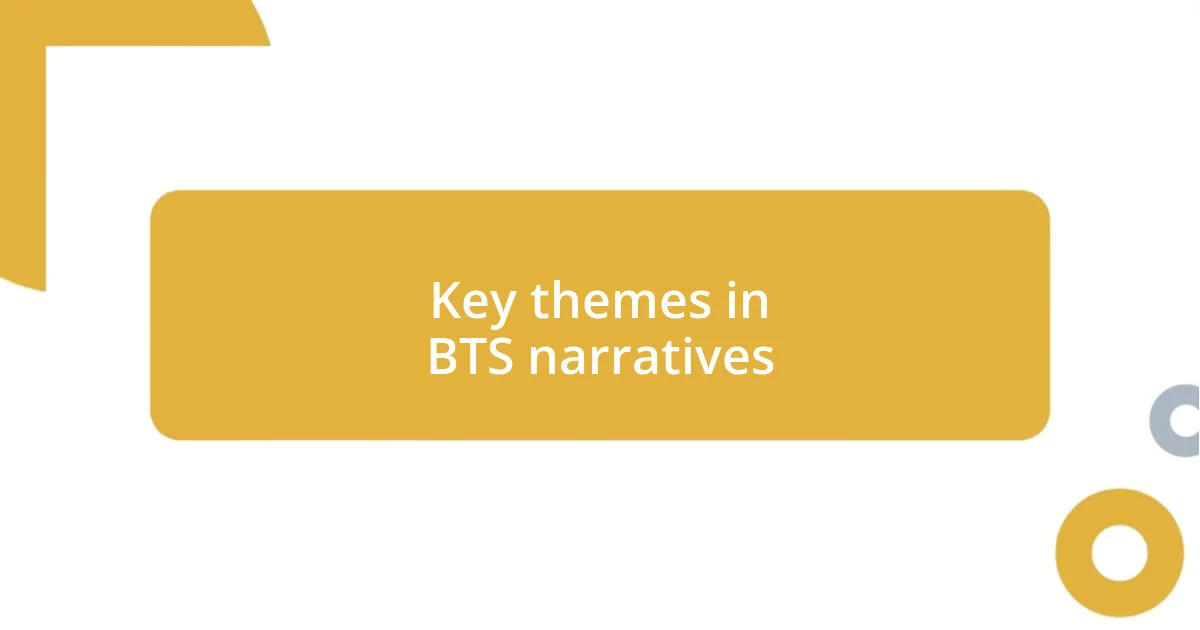
Key themes in BTS narratives
BTS narratives skillfully explore complex themes that resonate deeply with fans. Each song feels like a personal confession, one that invites us into their world while reflecting our own stories. Listening to “The Truth Untold,” for instance, I felt a sense of shared sorrow and hope, which sparked memories of my own hidden struggles. It’s fascinating how they articulate the nuances of human experience, reminding us that we’re never truly alone.
Key themes in BTS narratives include:
- Self-Discovery: The journey of realizing one’s true self after battling societal expectations.
- Mental Health: Open discussions about anxiety and depression, showcasing the importance of seeking help.
- Youth and Growth: The challenges of growing up and the bittersweet nature of adolescence.
- Connection and Belonging: A deep emphasis on community and finding solace in shared experiences.
- Love and Heartbreak: Exploring the highs and lows of love, presenting a relatable emotional cadence.
It’s this depth of insight that draws us in, allowing us to find pieces of ourselves in their art.
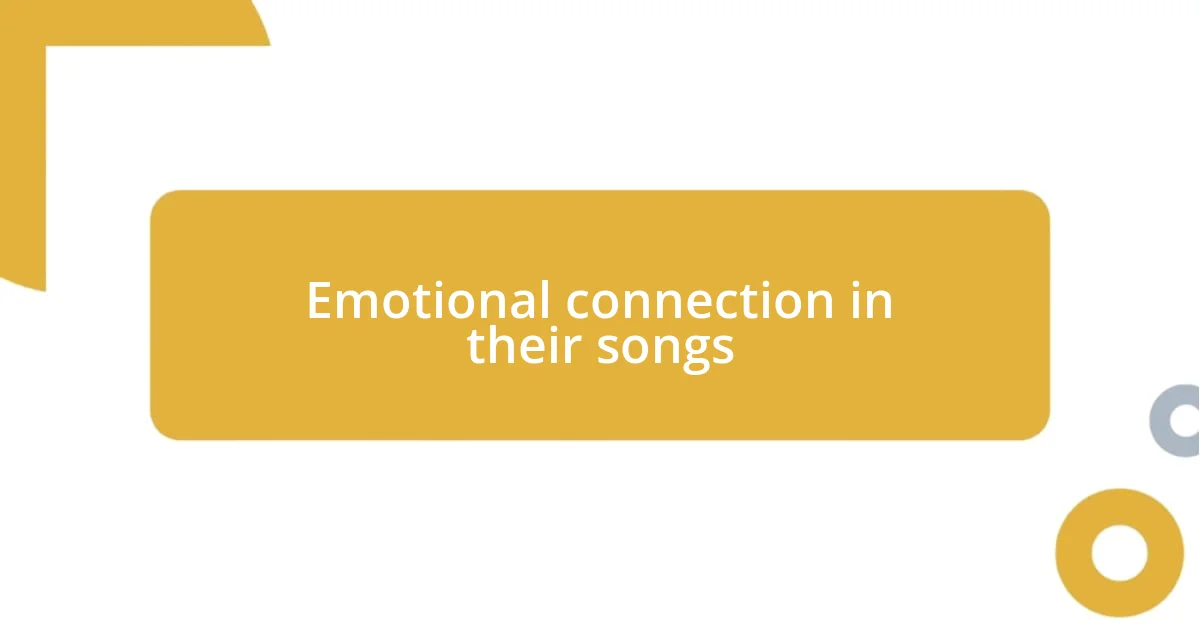
Emotional connection in their songs
BTS’s ability to forge emotional connections in their songs is truly remarkable. I remember listening to “Epiphany,” feeling a rush of empowerment and acceptance wash over me. The lyrics highlight the importance of self-love, encapsulating a journey that many of us can relate to. It made me reflect—how often do we embrace our flaws and celebrate our individuality? This song urges listeners to confront their inner struggles, creating a shared emotional landscape.
What I find particularly engaging is their use of vivid storytelling to evoke empathy. In “Spring Day,” for instance, I often think about the imagery of waiting and yearning. It hits home for anyone who’s experienced loss or separation. Listening to it, I recalled times when I’ve waited for a loved one to return—it feels like I’m part of a collective experience. Have you ever felt that deep connection through a song? It’s as if the music itself serves as a bridge between our stories and theirs.
Their songs resonate on such a personal level that it’s easy to forget they’re meant for a mass audience. I recall my friends and I discussing “Your Eyes Tell,” and how its themes of love intertwined with loss left us each in contemplative silence. The raw emotions expressed lead us to share our stories, creating a safe space for vulnerability. It’s this ability to connect that not only entertains but also heals.
| Song | Emotional Theme |
|---|---|
| Epiphany | Self-Acceptance and Empowerment |
| Spring Day | Longing and Nostalgia |
| Your Eyes Tell | Love and Loss |
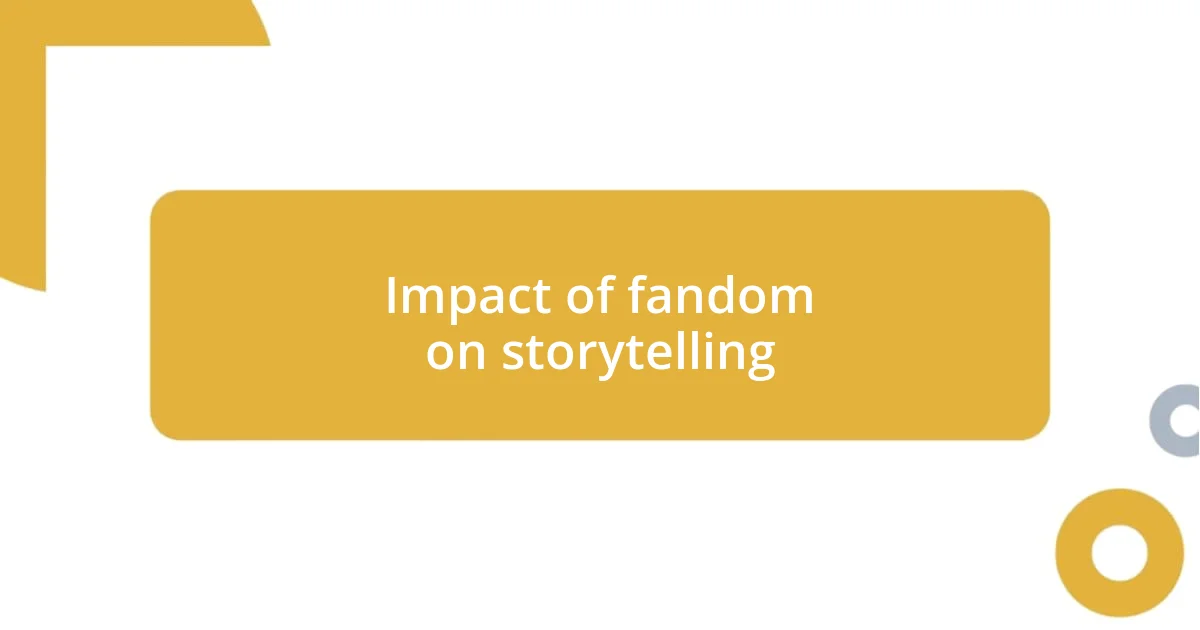
Impact of fandom on storytelling
The impact of fandom on storytelling is profound, especially when it comes to BTS. I remember joining online discussions with fellow ARMY members after the release of “Butter.” We shared our interpretations and experiences, creating a tapestry of meanings that expanded beyond the song itself. This collaborative spirit allows fans to contribute to the narrative, deepening our understanding and emotional connection to the music.
For many, fandom creates a communal space where personal stories intertwine with the artists’ narratives. I often find myself in awe of how fans interpret songs like “Save Me.” It’s more than just a song; it becomes a source of comfort during tough times. Have you ever found solace in music that felt tailored just for you? That’s the beauty of fandom; it transforms stories into lifelines, making each listener feel seen and heard.
Moreover, the artists themselves often engage with their fans, further bridging the gap between storytelling and personal experience. When BTS shared insights during their concerts, it felt like a conversation rather than a performance. My friends and I often discuss how hearing their thoughts on songs like “Life Goes On” made those moments even more relatable. It’s as if we’re part of their journey, enhancing our investment in the stories they tell. How incredible is it that we’re not just passive listeners, but active participants in this narrative exchange?
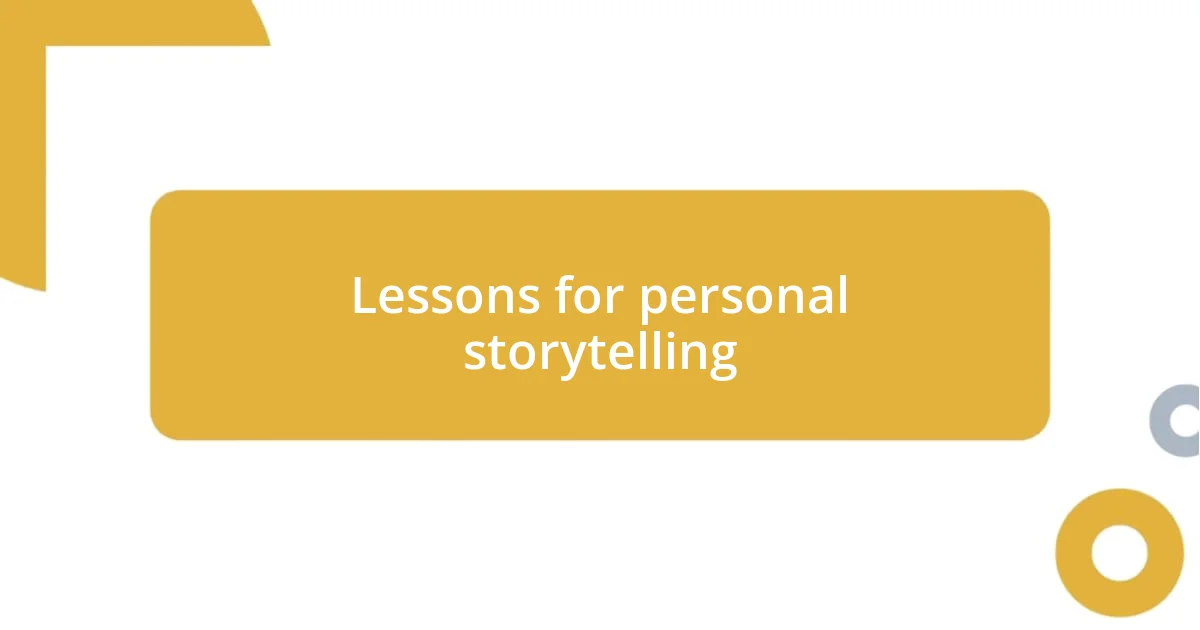
Lessons for personal storytelling
When it comes to personal storytelling, one of the key lessons I’ve learned is the power of authenticity. Whenever I share my stories, I try to infuse them with my true feelings and experiences, much like BTS does with their music. This genuine approach often resonates with others, making them feel connected and understood. Have you ever shared something from the heart and noticed the difference in how others responded? That rapport can create a safe space for vulnerability and connection.
Another valuable lesson is the importance of creating a narrative arc. Just as BTS expertly builds tension and resolution in their songs, I’ve found that my personal stories become more impactful when they have a clear journey. For example, I once opened up about a difficult period in my life and how I ultimately found my way out. Sharing that transformation not only made my story engaging, but it also allowed listeners to see that change is possible. Have you ever thought about how your struggles can lead to a meaningful resolution? It’s a powerful reminder that our narratives are ever-evolving.
Lastly, I’ve come to appreciate the role of emotional resonance in storytelling. Like BTS’s use of evocative lyrics and imagery, I try to paint vivid pictures with my words. When I recount my experiences, whether it’s a joyful moment or a heart-wrenching challenge, I aim to evoke feelings that sweep others into my world. I remember telling a friend about a cherished memory with my family, and the way I described the warmth of that moment sparked joy in her eyes. Can you recall a time when you shared a memory that ignited similar emotions in someone else? That exchange strengthens our connections and makes storytelling an enriching experience for both the teller and the listener.




